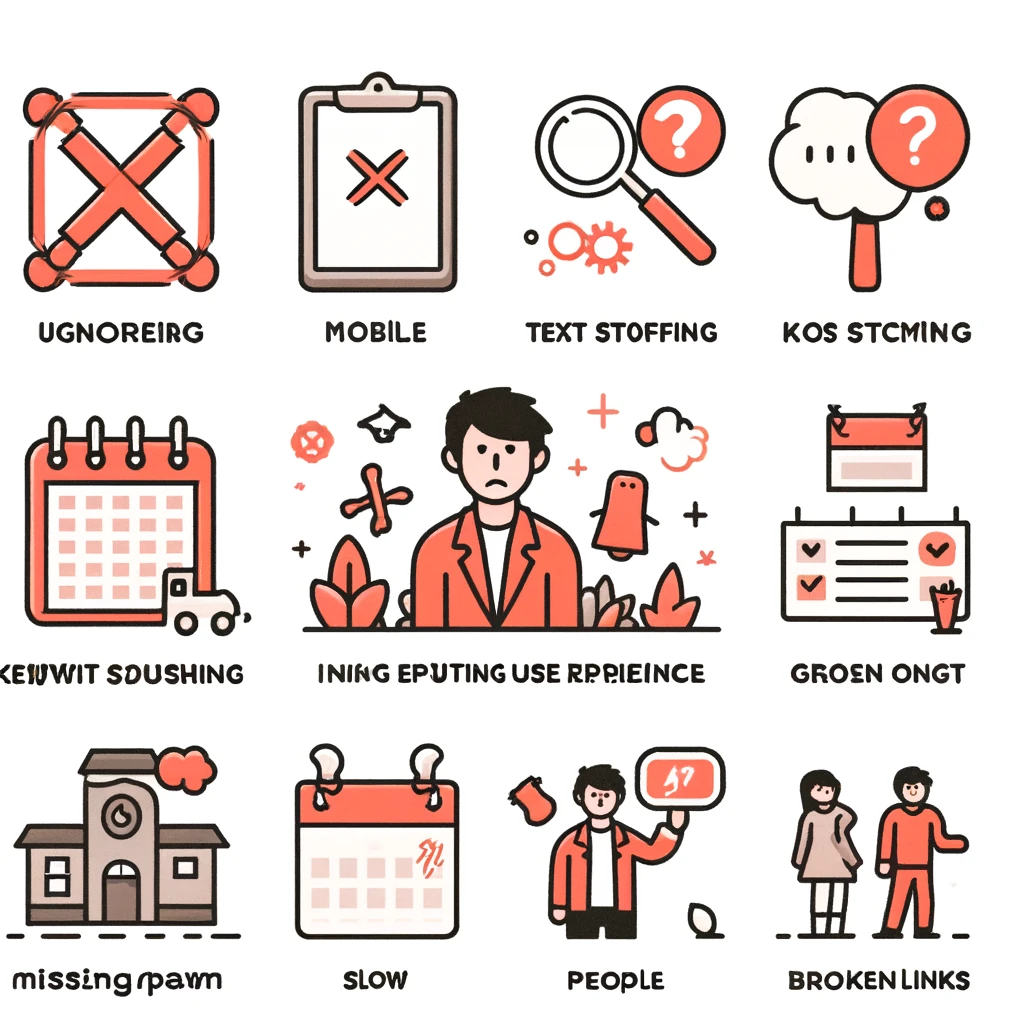SEO Mistakes to Avoid in 2024
Search Engine Optimization (SEO) is important for anyone running a website, whether it’s a small blog or a big online store. Good SEO brings traffic and helps your site rank higher on search engines like Google. But SEO is always changing, and some mistakes can harm your rankings. In 2024, avoiding these common SEO mistakes will be key to getting better results.
1. Ignoring Mobile Optimization
In 2024, mobile optimization isn’t optional anymore. More people browse the internet on their phones than on desktop computers. If your website doesn’t work well on mobile devices, you’re missing out on a lot of visitors. Google also uses mobile-first indexing, meaning it looks at the mobile version of your site first. Make sure your site is responsive, loads quickly, and is easy to navigate on a phone or tablet.

2. Keyword Stuffing
Years ago, adding a lot of keywords to your content might have helped with rankings. But now, Google is smarter and can easily detect keyword stuffing. Using the same keyword too many times will make your content look unnatural, and search engines will penalize you for it. Instead, focus on creating content that provides value to the reader. Use keywords naturally and try to include related terms (LSI keywords) to give more context to your content.
3. Neglecting User Experience (UX)
Search engines want to give users the best results possible. If your website is hard to use, visitors will leave quickly, and this increases your “bounce rate.” A high bounce rate tells Google that people aren’t finding your site helpful. To avoid this, make sure your site is fast, easy to navigate, and visually appealing. Pay attention to page load times and make sure your website’s design makes sense for users.
4. Not Updating Old Content
Many people think that once a blog post is published, it’s done. However, in 2024, it’s important to keep your content fresh. Google favors up-to-date information, especially in competitive niches. Go back to older posts, update them with current information, and make sure all links are still working. This is especially important for pages that get a lot of traffic.
5. Skipping Meta Descriptions
Meta descriptions may not directly impact rankings, but they influence whether people click on your website in search results. Many people overlook this small piece of SEO. A good meta description gives a quick summary of what the page is about and encourages users to click on it. If you don’t write one, search engines will pick a random snippet from your page, which might not be relevant.
6. Overlooking Technical SEO
Technical SEO might seem complicated, but it’s crucial. This includes making sure your website is crawlable, fixing broken links, setting up proper redirects, and ensuring there are no duplicate pages. Tools like Google Search Console can help you identify and fix technical issues on your site. If search engines can’t properly crawl and index your site, all your content efforts will be wasted.
7. Focusing Only on Search Engines, Not People
SEO isn’t just about pleasing Google or Bing. The real goal is to create content that helps your audience. If your website is stuffed with keywords but doesn’t provide any real value to visitors, it won’t perform well in the long run. Always focus on solving problems, answering questions, or providing useful information for your readers.
8. Forgetting About Local SEO
If you’re a local business, ignoring local SEO can be a huge mistake. In 2024, local searches will continue to grow. Make sure your business is listed on Google My Business and other local directories. Use location-specific keywords to help your website rank higher when people search for services in your area.
Conclusion
Avoiding these SEO mistakes in 2024 can greatly improve your website’s performance. Focus on providing a good user experience, keeping your content updated, and following best practices for mobile optimization and technical SEO. By doing so, you’ll see better results in search engine rankings and more traffic to your site.
